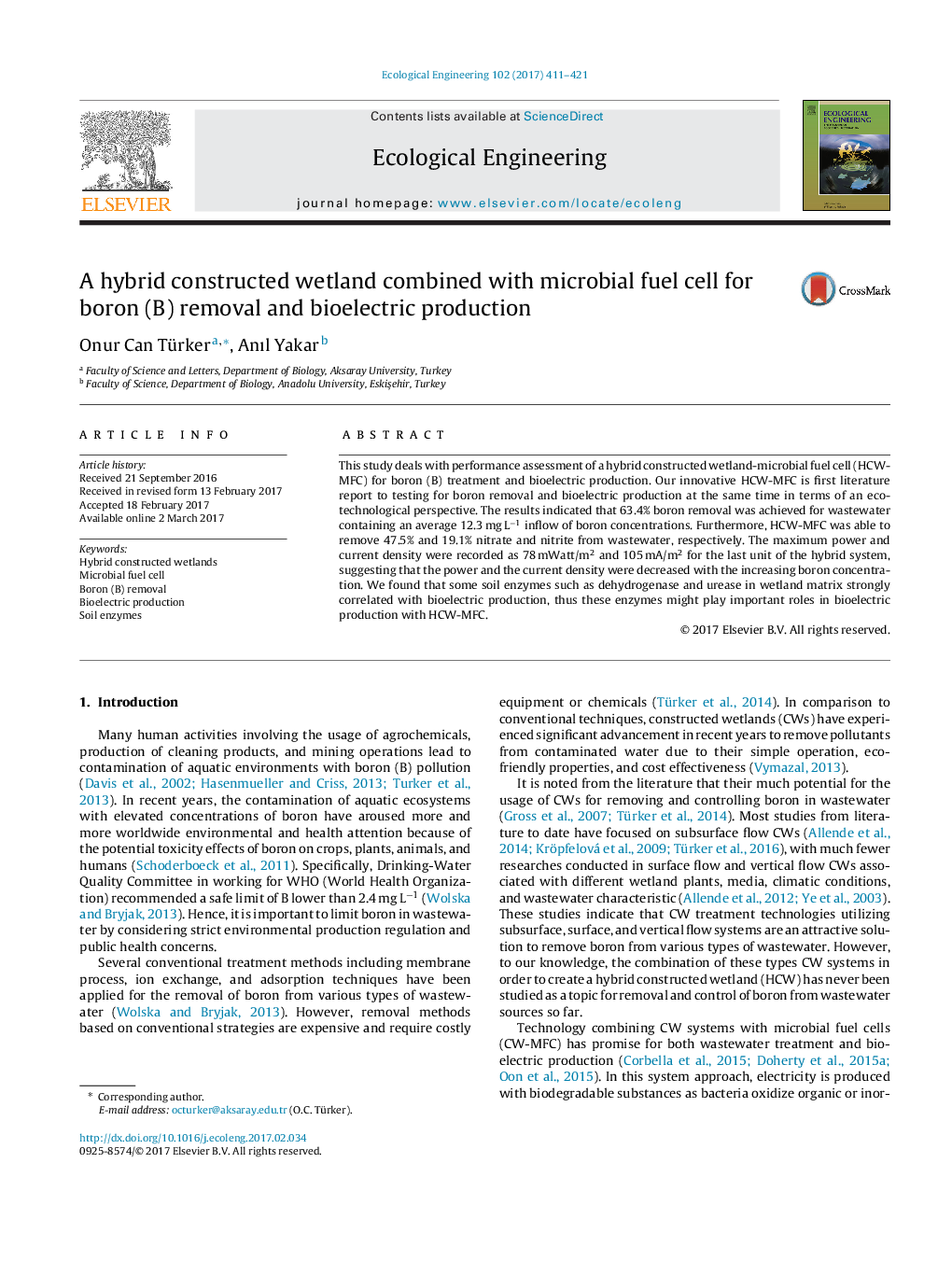| Article ID | Journal | Published Year | Pages | File Type |
|---|---|---|---|---|
| 5743786 | Ecological Engineering | 2017 | 11 Pages |
This study deals with performance assessment of a hybrid constructed wetland-microbial fuel cell (HCW-MFC) for boron (B) treatment and bioelectric production. Our innovative HCW-MFC is first literature report to testing for boron removal and bioelectric production at the same time in terms of an eco-technological perspective. The results indicated that 63.4% boron removal was achieved for wastewater containing an average 12.3 mg Lâ1 inflow of boron concentrations. Furthermore, HCW-MFC was able to remove 47.5% and 19.1% nitrate and nitrite from wastewater, respectively. The maximum power and current density were recorded as 78 mWatt/m2 and 105 mA/m2 for the last unit of the hybrid system, suggesting that the power and the current density were decreased with the increasing boron concentration. We found that some soil enzymes such as dehydrogenase and urease in wetland matrix strongly correlated with bioelectric production, thus these enzymes might play important roles in bioelectric production with HCW-MFC.
